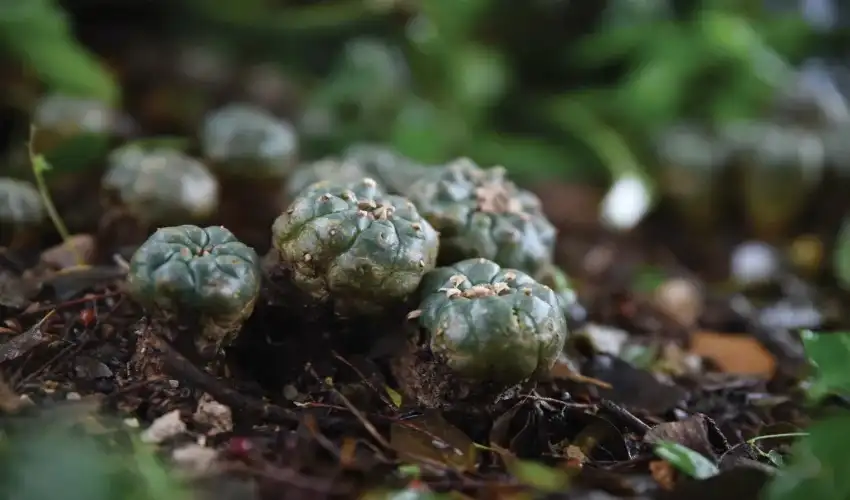Peyote (Lophophora williamsii) is a small, spineless cactus native to Mexico and the southwestern United States. This plant has profound cultural, spiritual, and medicinal significance, especially among Indigenous groups who have used it for centuries in religious ceremonies. However, due to its psychoactive properties, peyote is heavily regulated worldwide. Understanding peyote cactus laws is essential for those interested in its legal status, cultural relevance, and conservation concerns.
The Legal Status of Peyote: A Complex Framework
Peyote contains mescaline, a psychedelic compound classified as a Schedule I controlled substance under the U.S. Controlled Substances Act (CSA). This categorization means it is generally illegal to cultivate, possess, or distribute peyote in the United States. However, there are exceptions, primarily for religious use by Indigenous groups.
Federal Laws Governing Peyote Use in the U.S.
The legal landscape surrounding peyote in the U.S. is unique. While mescaline is a banned substance, peyote use is legally protected for members of the Native American Church (NAC) under the American Indian Religious Freedom Act (AIRFA) and its amendments, particularly the Religious Freedom Restoration Act (RFRA). These laws grant exemptions for the sacramental use of peyote in religious ceremonies by Indigenous people.
However, this exemption does not extend to non-Indigenous individuals, meaning that outside of religious use within recognized Indigenous communities, peyote remains illegal. Unauthorized possession or distribution can lead to severe legal consequences, including fines and imprisonment.
State Laws on Peyote: Variations Across the U.S.
While federal laws provide an overarching framework, individual states have their own peyote cactus buy regulations. Some states explicitly recognize the religious exemption, while others impose additional restrictions. In states such as Texas, where peyote naturally grows, there are regulations on its harvesting to prevent overharvesting and ecological damage.
Those interested in peyote should research state-specific laws to avoid legal complications. For example, some states allow for peyote possession only in specific contexts, while others maintain strict prohibitions regardless of religious affiliation.
International Peyote Laws
Peyote is illegal in many countries due to its mescaline content. Nations such as Canada, the United Kingdom, and Australia classify peyote as a controlled substance, prohibiting its cultivation, sale, and use. However, certain countries recognize Indigenous rights and provide limited legal allowances for traditional use.
Mexico, where peyote is native, has strict laws regulating its collection. Peyote harvesting is generally restricted to Indigenous communities that use it for religious purposes. Non-Indigenous individuals caught possessing or harvesting peyote without permission may face criminal charges.
Conservation Concerns and Sustainability Issues
Beyond legal restrictions, peyote faces serious conservation threats due to habitat destruction, overharvesting, and slow growth rates. As a result, conservationists advocate for responsible harvesting practices and cultivation efforts.
In Texas, peyote harvesting is regulated through licensed dealers to prevent excessive depletion of wild populations. Indigenous groups and environmentalists emphasize the importance of sustainable harvesting to ensure peyote remains available for future generations.
Legal Peyote Alternatives
Due to legal restrictions on peyote, some individuals seek alternatives. San Pedro (Echinopsis pachanoi) and Peruvian torch (Echinopsis peruviana) are two mescaline-containing cacti that are legal in some jurisdictions. However, extracting mescaline from these plants is still illegal under the CSA.
Additionally, synthetic mescaline is strictly prohibited, and possessing or distributing it can result in severe penalties. Those exploring legal alternatives should be cautious and fully understand the applicable laws.
The Future of Peyote Laws
Discussions around psychedelic reform, including the decriminalization of natural entheogens, may impact peyote laws in the future. Cities like Oakland and Denver have already decriminalized certain psychedelic plants, though peyote is often excluded from these measures to protect its limited population and Indigenous use.
Efforts to balance religious freedom, conservation, and legal considerations continue to shape peyote policies. Advocacy groups work toward policies that protect Indigenous rights while promoting sustainability and public education on peyote’s cultural and ecological significance.
Conclusion
Peyote laws are complex, varying by country, state, and religious context. While it remains a controlled substance in many regions, Indigenous groups have legal protections for religious use. Conservation concerns further complicate legal access, highlighting the need for responsible policies that preserve both the cultural significance and ecological health of peyote. Those interested in peyote should stay informed about evolving laws and respect its cultural and environmental importance.
